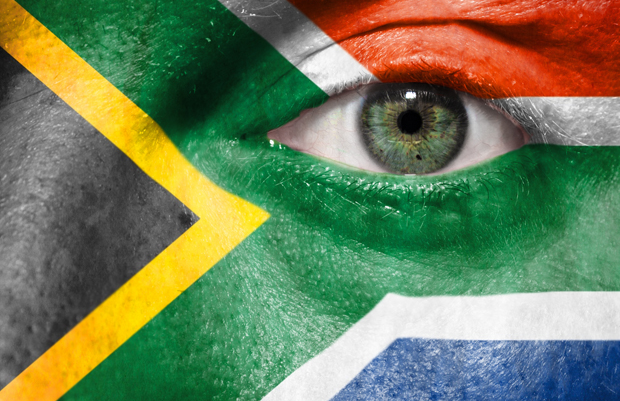
Photo illustration: Shutterstock
South Africa’s ruling African National Congress (ANC) has received an overwhelming majority of media coverage ahead of the country’s fifth democratic election which is it expected to win. Media Monitoring Africa, a non-profit watchdog, revealed 39% of all reporting across 50 print, broadcast and online sources referred to the ANC, whether by name or by using a party source up to April 30.
Although the current government has the ability to control a significant part of the election message primarily through the state broadcaster, the SABC, the ANC’s share of the pre-poll media space has been helped by their competitors. The official opposition, the Democratic Alliance (DA), and the next most media-prevalent party the Economic Freedom Front (EFF), have structured their campaigns on attacking Jacob Zuma’s party ahead of promoting their own aims, despite the ANC’s attempts to silence them.
While more than half the media coverage is dedicated to party campaigning and politics, the next highest covered topic is corruption, specifically Zuma’s homestead, Nkandla. The residence received a R246 million (£13.85 million) state-funded upgrade over two years which South Africa’s public protector Thuli Madonsela declared as an undue benefit to Zuma and his family in a report released six weeks before the elections.
Madonsela’s findings provided a springboard for the DA’s primary electioneering strategy. In late March, the party sent out a text message to more than 1.5 million people in the Gauteng province, where the country’s capital Pretoria and economic hub Johannesburg are located, which in part read: “The Nkandla report shows how Zuma stole your money… Vote DA on 7 May to beat corruption.”
The ANC launched an urgent court application to stop the message from being sent out. It took issue with the word “stole”, which Madonesela had not used it in her report and called the contents of the DA’s text a “deliberate lie”. Acting judge Mike Hellens ruled the DA’s actions as fair comment because he said their conclusion could have been made by a reasonable person.
That has not meant the DA has been successful in attacking the ANC on other platforms, specifically the SABC. A DA television advert was pulled off air after three showings on 8 and 9 April because the broadcaster said it would not screen messages which incited violence, contained false information, went against the Advertising Standards Authority’s guidelines which do not permit promotion of one product by attacking another or which contain a personal attack on any party member by another.
The 44-second commercial featured the DA’s Gauteng premier candidate Mmusi Maimane calling “Jacob Zuma’s ANC corrupt” and, when talking over a visual of a policeman aiming a firearm at civilians saying: “We have seen a police force killing our own people.” The latter is reference to the Marikana massacre in 2012 when police and striking workers were involved in a violent exchange which resulted in the deaths of 44 people.
At first ICASA overturned the SABC’s ban but when the South African police force approached them and said the images could endanger its officers, the ban was upheld. South Africa’s freedom of expression right, contained in the Bill of Rights in the Constitution, prohibits, amongst other things, incitement of violence.
The DA then launched a second television advert which began with Maimane saying the words, “They tried to silence us…” before going into a narrative about the changes the DA will enforce. The SABC refused to air this as well because of the opening line which it said was untrue since ICASA had upheld the initial ban. The DA called the decision “censorship, plain and simple”.
They are not alone in making that accusation. The EFF’s leader Julius Malema said the SABC were guilty of “suppressing democracy” because it banned one of his party’s adverts. The commercial in question also referred to “Nkandla corruption” and ended with Malema’s face on a poster which reads: “Destroy e-tolls physically.” E-tolls are the new electronic tolling system installed on highways in the Gauteng province which have caused public outrage because of their costs.
The SABC took issue with the call to commit vandalism, which it said was included in the limitation of the right to free speech. Malema defended the poster, arguing it conveyed the message that if the EFF came into power they would “destroy e-tolls physically because we can’t destroy them emotionally” ICASA sided with the SABC, agreeing that the message “could be perceived as condoning… unlawful acts”.
Despite what has been seen as the public broadcaster toeing the ruling party line, other outlets have been vocal against the ANC. Last Friday, the Mail and Guardian, a weekly paper which has traditionally supported the left-wing, published an editorial urging readers to dilute the ANC’s power by voting against it. “Never before has the M&G urged readers to oppose the ANC. But we do so now because the aim is to make the ANC more effective and responsive,” read their piece. But even that would have counted as coverage for the ruling party.
This article was published on May 6, 2014 at indexoncensorship.org




